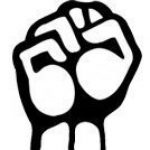 What did President Barack Obama’s visit to the Middle East actually achieve? Although many people dared expect him to express stronger views on the continued Israeli occupation of the West Bank and blockade of Gaza, Obama used his ‘charm offensive’ to assure Israelis that the United States remains on their side.
What did President Barack Obama’s visit to the Middle East actually achieve? Although many people dared expect him to express stronger views on the continued Israeli occupation of the West Bank and blockade of Gaza, Obama used his ‘charm offensive’ to assure Israelis that the United States remains on their side.
As helicopters circled the skies, and Jerusalem and Ramallah were closed off to all non residents, Obama’s speech in Ramallah played down the Jewish-only settlements by saying that the US does not see them as ‘constructive’ or ‘appropriate’ for peace, but stopping short of calling for their dismantling, which prompted the Palestinian Authority leader Mahmoud Abbas to uncharacteristically interject in describing them as illegitimate and more than an obstacle to peace.
In Israel Obama did all the usual things, including the obligatory visit to the Yad Vashem Holocaust Memorial Museum. But attention was focused on his speech at the Jerusalem International Convention Centre to thousands of Israeli students and academics. One of the phrases he used, in Hebrew, was ‘you are not alone’ – though using no similar phrase in Arabic when he spoke in Ramallah. Israeli Ha’aretz columnist Gideon Levy saw in this speech much hope because, after assuring Israel that the US is still on its side, Obama insisted that the only way forward is peace and a two states solution. Obama also stressed that the Iran threat is not only Israel’s problem, insisting that Israel must not go it alone and attack Iran without US approval.
While Palestinian Authority leaders expressed satisfaction and reiterated that only a Palestinian state side by side with Israel can bring peace to the region, more radical Israelis and Palestinians were less than enthralled. On the Palestinian side, Electronic Intifada reminds us that ‘US foreign policy has always favoured and strongly supported the Israeli occupation and rewarded it with billions of dollars in military aid annually. From 1949 until the present day, the US has given Israel more than $115 billion’. Rabeea Eid, an Israeli Palestinian student activist heckled Obama during his speech, asking ‘Did you really come here for peace or to give Israel more weapons to kill and destroy the Palestinian people? Did you happen to see the apartheid wall on your way here?’ Though joked that he was expecting the heckling, Eid was bundled out of the hall by security guards. The president did not see the Apartheid wall, and during his visit some 30 Palestinian children were arrested for stone throwing, while in the south of the country missiles were fired from Gaza. In Israel, meanwhile, a group of radical Israeli Jews held a demonstration thanking Obama ‘for supporting our apartheid state’.
Palestinian disappointment with the visit encouraged their ongoing struggle. Thus this week saw a march in Jerusalem’s Via Dolorosa by Palestinian religious leaders to highlight the plight of Palestinian Christians. At Bab el Shams, the Palestinian protest tent city in area E1, where Israel plans to erect a new settlement cutting off the West Bank from Jerusalem, the wedding of a Jenin youth and his fiancée served as a symbol for the activists’ resolve to live a normal life and ensure Palestinian presence in this area, slated for Israeli settlement.
Obama, who played the good cop, has now left the region after what was described by the Israeli government and its Palestinian Authority acolytes as a successful visit, leaving Secretary of State John Kerry to play the bad cop. It will be up to Kerry to push the two sides to renew the negotiations for a two state solution, even though only very few in the region believe it is realistic.

You must be logged in to post a comment.